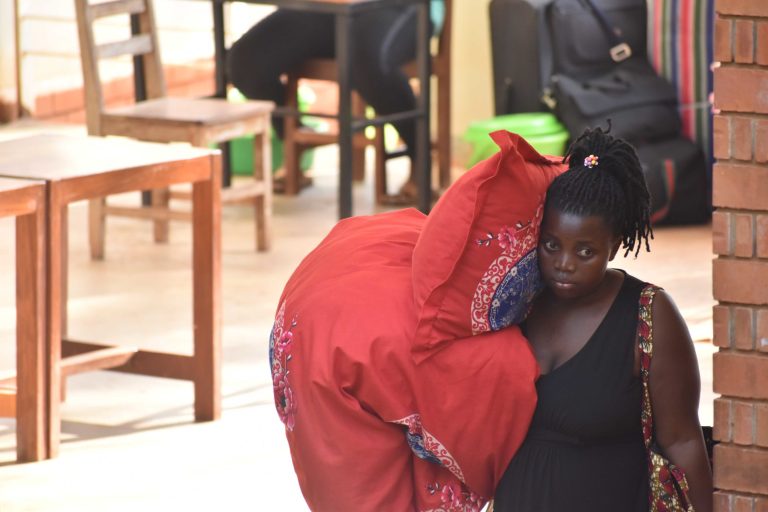By Jimmy Siyasa
The second Covid-19 wave is currently sweeping across Uganda, paralyzing life and livelihoods of many people. Education institutions have been hit, after Uganda’s President Yoweri Museveni shut them once again, for 42 days, effective June 7.Inter-district transport in both public and private means also has been banned for 42 days, starting June 10. Uganda’s health ministry says it has so far registered four Covid-19 variants – the Wuhan strain and the variants from South Africa, India and the UK.On June 4, Uganda registered its highest number of corona virus cases in a single day – 1,259 out of the 7,424 tests done.
During a televised address on June 6, Museveni noted that the restrictions would prevent overwhelming the country’s health system. The current number of hospital beds to manage Covid-19 patients in Uganda stands at 3,793. As of June 6, Uganda’s cumulative number of Covid-19 cases stood at 52,929, reported confirmed deaths at 374 and recoveries at 43,487.In response to the directive of shutting down schools, the Uganda Christian University (UCU) Vice Chancellor, Assoc. Prof. Aaron Mushengyezi, issued a statement on June 7, asking the institution’s staff and students to migrate to online learning.“The Division of Academics and the Alpha MIS/UIS team should offer students and lecturers the support they need to ensure that e-learning is seamless, as we have done before,” Mushengyezi said.In February 2021, the Ugandan government had given the greenlight for education institutions to resume physical classes for the first time since March last year. The return to school, which was expected to be in a phased manner, followed the October 2020 resumption of face-to-face learning of final-year learners, who sat for their national exams in March, April and May 2021.In his June 6 address to the nation, the President announced that when schools eventually re-open after the second wave, only teachers who will have been vaccinated will be allowed back on duty. UCU has been urging its staff and students to get vaccinated, starting with its health workers on March 12. On June 2, the university rolled out a mass vaccination exercise at its clinic, the Allan Galpin Health Center. An estimated 100 people took jabs on the first day of the exercise.

Uganda has vaccinated 706,000 people, with about 4,000 of those having received their second dose of the AstraZeneca vaccine. In the June 6 address, Museveni said the country was exploring possibilities of procuring China’s Sinovac vaccine, Russia’s Sputnik-V vaccine and Johnson & Johnson. At that, it is not confirmed if any of the world’s current vaccines cover all variations found in Uganda.Dr. Geoffrey Mulindwa, the Director of Medical Services at UCU’s medical facility, said the mass vaccination program at the university was an opportunity for the institution to join in the fight against the second wave of Covid-19. At the vaccination exercise, Mulindwa said priority was given to those who were due for their second jabs.In March, the university commissioned a Covid-19 student task force, to ensure the safety of learners at UCU. The 244 students were tasked with coordinating health activities related to Covid-19 in the university. At the commissioning of the task force, Mulindwa said the university had lost two staff members to Covid-19. At least three others contracted the virus with one recovered and two still in recovery in June.In early June, UCU had around 500 students living on campus. According to the University Halls custodian, Reverend Simon Peter Ddamba Anatoli, before the lockdown, there were 279 female and 218 male residents. With the latest order, all but a few international students and some athletes are required to leave.


